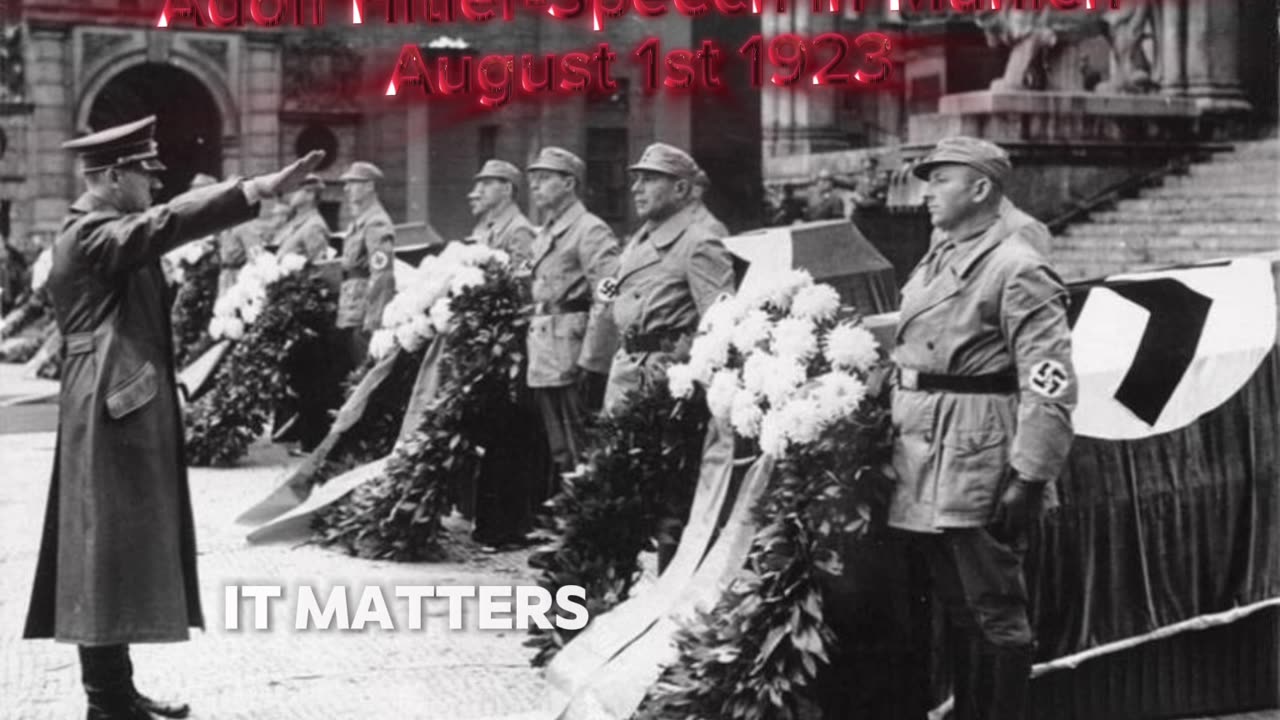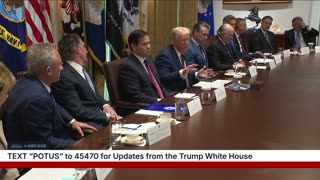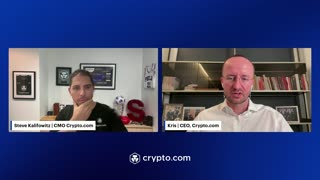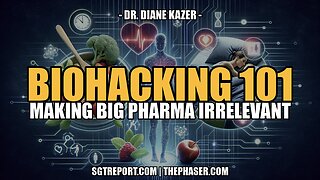Premium Only Content

Hitler's Speech in Munich - August 1, 1923
Background Leading Up to Hitler's Speech in Munich - August 1, 1923
Weimar Republic Instability: In 1923, the Weimar Republic was experiencing severe political and economic instability. The aftermath of World War I, along with the harsh terms of the Treaty of Versailles, had left Germany in a state of crisis.
Hyperinflation: Germany was suffering from hyperinflation, which devastated the economy and caused widespread hardship among the population. The value of the German mark plummeted, leading to skyrocketing prices for basic goods.
Rise of the Nazi Party: The National Socialist German Workers' Party (NSDAP), led by Adolf Hitler, was gaining traction as it capitalized on public discontent. The party's nationalist and anti-Weimar rhetoric resonated with many Germans who were frustrated with the current state of affairs.
French Occupation of the Ruhr: In January 1923, French and Belgian troops occupied the Ruhr, Germany's industrial heartland, in response to Germany's failure to pay reparations. This occupation further fueled nationalist sentiments and economic woes.
Key Points of Hitler's Speech:
Condemnation of the Weimar Republic: Hitler began by vehemently criticizing the Weimar Republic for its perceived failures and weaknesses. He blamed the government for Germany's economic collapse and national humiliation.
Nationalism and Unity: Hitler called for national unity and the revival of German pride. He emphasized the need for a strong, unified nation that could stand up against foreign oppressors and internal traitors.
Anti-Versailles Sentiment: The Treaty of Versailles was a recurring theme in Hitler's speech. He condemned the treaty as unjust and crippling for Germany, and he vowed to overturn its terms and restore Germany's sovereignty and territorial integrity.
Economic Solutions: Hitler presented his vision for economic recovery, which included the rejection of reparations and the rebuilding of German industry. He argued that only a strong, nationalist government could achieve economic stability and prosperity.
Call to Action: Hitler urged his audience to join the Nazi movement and fight for the future of Germany. He stressed the importance of political activism and support for the NSDAP as the only means to achieve national revival.
Analysis:
Appeal to Discontent: Hitler's speech was designed to tap into the widespread discontent and frustration among the German population. By condemning the Weimar Republic and the Treaty of Versailles, he positioned the Nazi Party as the champion of German interests and sovereignty.
Nationalist Rhetoric: The emphasis on nationalism and unity was a key component of Hitler's message. He sought to rally the German people around a common cause and to instill a sense of pride and determination to overcome the nation's challenges.
Economic Promises: Hitler's proposed economic solutions were aimed at offering hope and a way out of the economic crisis. By rejecting reparations and advocating for the revitalization of industry, he presented the Nazi Party as the answer to Germany's economic woes.
Mobilization of Support: The call to action was a crucial element of Hitler's speech. He aimed to mobilize support for the NSDAP and to encourage political activism among his followers. This was part of his broader strategy to build a mass movement capable of challenging the existing political order.
Overall, Hitler's speech in Munich on August 1, 1923, was a powerful articulation of his nationalist and anti-Weimar ideology. It sought to rally support for the Nazi Party by appealing to the economic and political frustrations of the German people, offering a vision of national revival and strength.
-
 LIVE
LIVE
Timcast
1 hour agoDemocrat States Ignore English Language Mandate For Truckers, DoT Vows Crackdown Amid Trucker Mayhem
26,771 watching -
 LIVE
LIVE
Dr Disrespect
1 hour ago🔴LIVE - DR DISRESPECT - GEARS RELOADED GLOBAL LAUNCH - CRUSHING LOCUST
1,109 watching -
 LIVE
LIVE
Sean Unpaved
22 minutes agoCincinnati's Sack King Stays: Decoding the Deal & the NFL's Open-Ended Questions
171 watching -
 1:57:04
1:57:04
Steven Crowder
3 hours agoAdios & Ni Hao: Trump Sends Abrego Garcia to Africa But Welcomes 600K Chinese to America
187K138 -
 LIVE
LIVE
The White House
3 hours agoPresident Trump Participates in a Cabinet Meeting, Aug. 26, 2025
2,998 watching -
 LIVE
LIVE
Rebel News
25 minutes agoCarney's flawed LNG deal, Libs keep mass immigration, Poilievre's plan to fix it | Rebel Roundup
97 watching -
 LIVE
LIVE
Side Scrollers Podcast
2 hours agoINSANE Illegal Migrant Propaganda Xbox Game + Paypal REFUSES To Pay Dev + More | Side Scrollers
238 watching -
 27:39
27:39
Crypto.com
3 hours ago2025 Live AMA with Kris Marszalek, Co-Founder & CEO of Crypto.com
39.7K3 -
 LIVE
LIVE
TheAlecLaceShow
54 minutes agoMAGA Pushback Against Flag Burning EO & 600K Chinese Students | Cashless Bail | The Alec Lace Show
52 watching -
 1:09:18
1:09:18
SGT Report
15 hours agoBIOHACKING 101: MAKING BIG PHARMA IRRELEVANT -- Dr. Diane Kazer
21.5K18